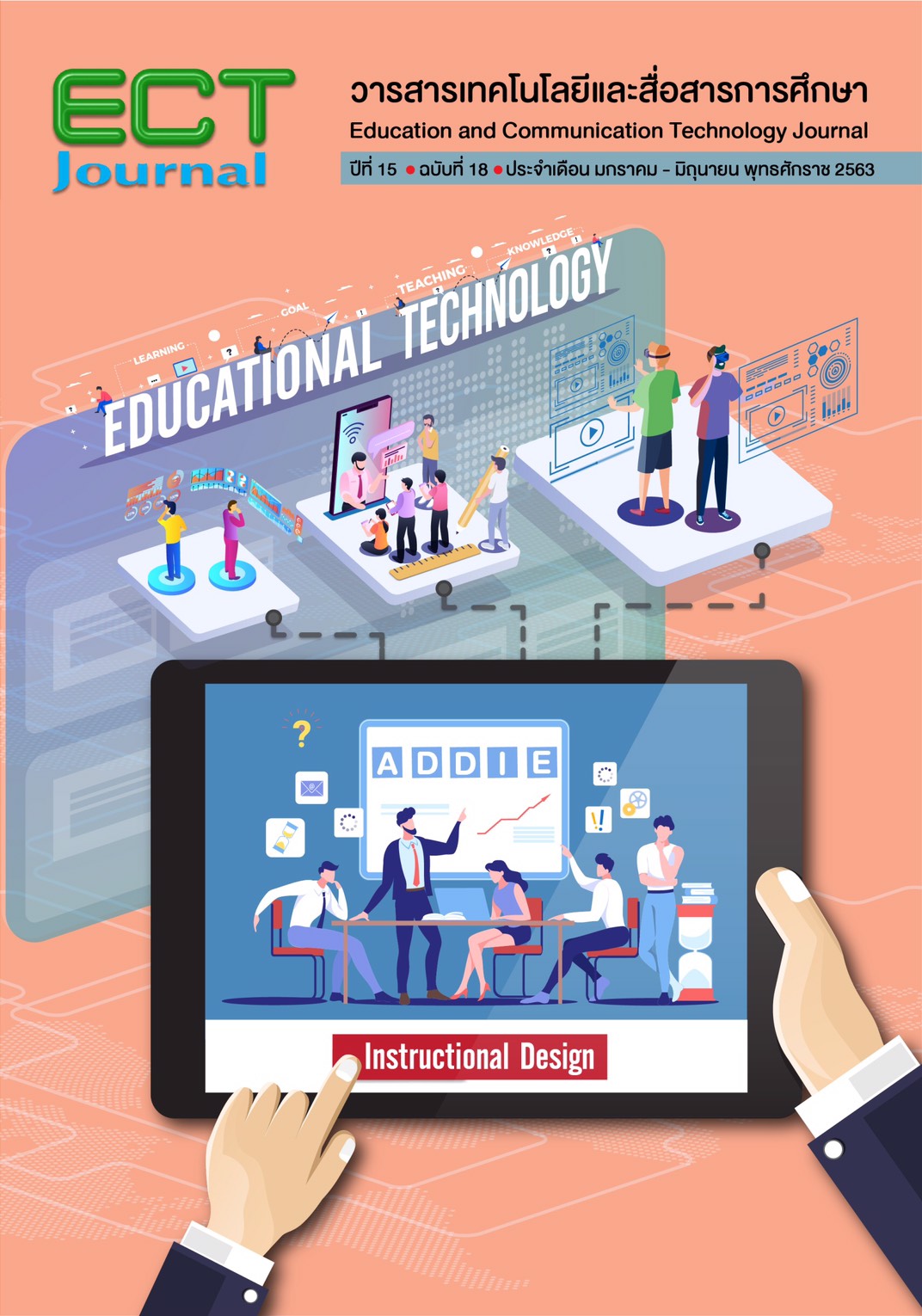GAMIFICATION IN DISTANCE LEARNING SYSTEM DESIGN
Keywords:
Gamification, Online Learning System Design, Distance LearningAbstract
Gamification is a technique of learning and teaching process by applying of concepts and mechanics integrated for creating a competitive and fun learning activities that would encourage learners to participate and become motivated. Gamification for distance learning can reduce limitation of learnings due to distance between learners and teachers, it also increase collaboration in the learning process. The components of gamification in online learning system includes 1) dimensions of gamification, 2) mechanism of gamification, and 3) elements of gamification. Moreover, gamification design in online learning should integrate the concept and mechanics of the game with learning goals by using the elements of the gamification to create challenges, motivation and fun, consistent with online learning context. The challenges in gamification design and online learning to be considered includes 1) the goal of game design, 2) methods and procedures for game design, 3) the elements of gamification and 4) the learning environment with the usage of gamification for learning.
References
จิราภร คุ้มมณี และปณิตา วรรณพิรุณ. (2561). การเรียนรู้แบบสะเต็มเกมมิฟิเคชันเพื่อเสริมสร้างทักษะด้านนวัตกรรมสร้างสรรค์ของนวัตกรอาชีวศึกษา. วารสารวิชาการมหาวิทยาลัยการจัดการและเทคโนโลยีอีสเทิร์น. ปีที่ 15 ฉบับที่ 2 กรกฎาคม – ธันวาคม 2561: หน้า 162-176.
ใจทิพย์ ณ สงขลา. (2561). การออกแบบการเรียนแนวดิจิทัล. กรุงเทพฯ: โรงพิมพ์แห่งจุฬาลงกรณ์ มหาวิทยาลัย.
ชนัตถ์ พูนเดช และธนิตา เลิศพรกุลรัตน์ (2559). แนวทางการจัดการเรียนรู้ด้วยแนวคิดเกมมิฟิเคชัน.วารสารศึกษาศาสตร์ มหาวิทยาลัยนเรศวร ปีที่ 18 ฉบับที่ 3 กรกฎาคม – กันยายน 2559 : หน้า 331-339.
เบญจภัค จงหมื่นไวย์, กริช กองศรีมา, แสงเพ็ชร พระฉาย, สายสุนีย์ จับโจร, และอรัญ ซุยกระเดื่อง. (2561). เกมมิฟิเคชันเพื่อการเรียนรู้. วารสารโครงงานวิทยาการคอมพิวเตอร์และเทคโนโลยีสารสนเทศ. ปีที่ 4 ฉบับที่ 2 กรกฎาคม – ธันวาคม 2561: หน้า 34-43.
ศยามน อินสะอาด. (2561). การออกแบบบทเรียน e-Learning เพื่อพัฒนาทักษะการคิดขั้นสูง. กรุงเทพฯ: บริษัทซีเอ็ดยุเคชั่น จำกัด (มหาชน).
Daniel, S., Andrija, B. & Danijel, R. (2015). Gamification in E-Learning: Introducing Gamified Design Elements into E-Learning Systems. Journal of Computer Sciences. 11 (12): 1108.1117
Dicheva, D., Dichev, C., Agre, G., & Angelova, G. (2015). Gamification in Education: A Systematic Mapping Study. Educational Technology & Society, 18 (3). Retrieved from http://www.ifets.info/journals/18_3/6.pdf
Huang, W. H.-Y., Soman D. (2013). Gamification of Education. Report Series: Behavioural Economics in Action, 29.
MacMeekin, M. (2017). Gamification and Instructional Design. Retrieved October 24, 2017, from https://anethaicalisland.wordpress.com/2013/03/08/gamification-and-instructional-design
Marczewski, A. (2016). Marczewski’s Gamification User Types. Retrieved from https://elearningindustry.com/marczewski-gamification-user-types
Reem, I. M. & Thair, M. H. (2016). A Gamified e-Learning Design Model to Promote and Improve Learning. International Review on Computers and Software (I.RE.CO.S.), Vol. 11, N. 1. January 2016. ISSN 1828-6003
Werbach, K. & Hunter, D. (2012). For the Win: How Game Thinking Can Revolutionize Your Business. Wharton Digital Press.
Yusuf, L. S., Nejdet, K., Aras, B., Ezgi, D., Hakan, K., Serap, U., Salih, G. & Aylin, O., Can, G. (2017). The Use of Gamification in Distance Education: A Web-Based Gamified Quiz Application. Turkish Online Journal of Qualitative Inquiry (TOJQI). Volume 8, Issue 4, October 2017: 372-395 DOI: 10.17569/tojqi.329742
Downloads
Published
How to Cite
Issue
Section
License
1. ทรรศนะและข้อคิดเห็นใด ๆ ที่ปรากฏอยู่ในวารสาร ECT Education and Communication Technology Journal เป็นของผู้เขียนโดยเฉพาะ สำนักเทคโนโลยีการศึกษา มหาวิทยาลัยสุโขทัยธรรมาธิราช และกองบรรณาธิการไม่จำเป็นต้องเห็นพ้องด้วย
2. กองบรรณาธิการของสงวนลิขสิทธิ์ในการบรรณาธิการข้อเขียนทุกชิ้น เพื่อความเหมาะสมในการจัดพิมพ์เผยแพร่






